A group of experts on soil science drawn from all over the world met in Kampala, Uganda recently to push for long-term trials for Integrated Soil Fertility Management (ISFM) in Africa where one of the biggest obstacles to agriculture productivity increases are poor old soils whose nutrients have been stripped off following years of mining with little replenishment and where fertilizer use is the lowest in the world.
The meeting held from 11-12 November was funded by the CGIAR Research Program on Water Land and Ecosystem (WLE) and was organized by the International Institute of Tropical Agriculture (IITA)
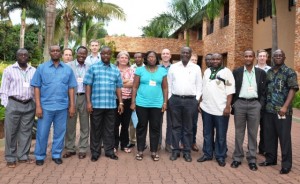 ISFM is defined as ‘the application of soil fertility management practices, and the knowledge to adapt these to local conditions , which maximize fertilizer and organic resource use efficiency and crop productivity. These practices necessarily include fertilizer and organic input management in combination with improved germplasm.’
ISFM is defined as ‘the application of soil fertility management practices, and the knowledge to adapt these to local conditions , which maximize fertilizer and organic resource use efficiency and crop productivity. These practices necessarily include fertilizer and organic input management in combination with improved germplasm.’
ISFM is seen as one of the ways to support sustainable intensification of farming systems in Africa which is now seen as one of the ways to address the challenge of how to increase agricultural production to meet the food needs of a growing population and for economic development amidst shrinking of land available for agriculture.
However, while it has shown its potential in the short term, longer term effects on soil fertility and other ecosystem services are still unclear. Hence the need to invest in long-term ISFM trials. Below are short interviews with some of the scientists gathered at the event on why long-term ISFM research is important, what it will entail and possible challenges.
Very briefly what is ISFM and why is it important? Basically soils are very important – they support life. They support food production. Furthermore, to us scientists, soils sustain ecosystems and support biodiversity. In ISFM we are looking at how to use all available options to make sure we get the most out of the soils.”
Prof Daniel Mugendi, a soils scientist with Embu university College, Kenya.
Why is ISFM important? ISFM is important because of the declining soil fertility and the need to address this in the interest of the resource poor farmers. Fertility in many places has been declining following years of traditional farming practices that have led to mining of the soils. We therefore need to find cost effective and sustainable practices that will ensure the replenishment of essential growth nutrients.
Why long-term ISFM trials? Traditionally all ISFM trials have been on a short term basis. So to what extent can we determine the optimal levels of components in ISFM? Is it when crop yields are stable and constant or is it when the soils chemical and physical properties are at optimal levels?
What are some of the anticipated challenges? Challenges are enormous. First there are so many factors involved in long-term trials. So we need to determine the right balance of the factors to study as we cannot study everything. Also the various levels of factors may not be applicable to all the sites. The challenge then is how do we make sure we have the levels of factors and combinations that will be applicable to a majority of the soils? And thirdly, we will have to be very careful as we select research sites to ensure they are as representative of many conditions as possible. This will ensure that the findings of our research have wider inference base which may then enable extension or scaling to other non-study areas. And this poses serious logistical concerns.
Prof Sagary Nokoe, University of Energy and Natural Resources, Sunyani, Ghana
What will long-term ISFM trials entail? For the first time, we will bring in a longer time scale to see how soils improve over time with ISFM. Long term trials will also enable us to anticipate problems and future challenges such as preparing farmers to cope and adapt to climate change. For example, one of the regions we looked at for setting up long term ISFM trials was Southern Africa. Currently, the region has erratic rainfall and this is expected to get worse with climate change. ISFM which includes all measures to make a system more productive and sustainable will support small holder farmers to cope with the erratic rainfall through adapting their cropping systems, diversifying and paying attention to cropping time.
Challenges? Long term trials need long term commitments not only from the researchers but also from the donors. Funding will be a major challenge.
Prof Jan Diels, KU Leuven (University of Leuven), Belgium
What progress was made in the meeting in operationalizing long-term ISFM? There are already
some ongoing long-term ISFM trials in different countries under the Africa Network for Soil and Biology Fertility (Afnet) by different partner organizations. However, in this meeting we have identified new opportunities and issues to justify new long-term ISFM trials to complement the on-going trials. New issues, new problems, new technologies and approaches have been identified. For example, when we were setting up the old trials we tended to focus mostly on increasing productivity and we did not pay much attention to sustainability. So we have agreed to maintain old trials but also set up new trials that will address these new problems.
Saidou Koala, Coordinator, Africa Network for Soil and Biological Fertility (Afnet)
What progress was made in the meeting in operationalizing long-term ISFM? We can say we have all reached a common understanding of ISFM, the principles and concepts. The design components for field experiments for long-terms ISFM approaches have been well understood and agreed upon by everyone. We have also elaborated an action plan on how we will move on from here.
Challenges? Funding of course. We cannot do anything without funds.
Andre Bationo, formerly with Alliance for a Green Revolution in Africa (AGRA)
Why was it important to hold this meeting? Do you think it has achieved its objective?
The main objective of the meeting was to draft strategy for evaluating the sustainability impacts of ISFM. This can only be done by engaging scientist from African institutes and from institutes in the North who have a clear insight in the role long-term trials can play in enhancing our understanding of the role of soils in sustainable intensification of African Agriculture. We have achieved this objective, drafted a compelling conceptual framework underlying the strategy, and identified prototype designs and approaches to address the main research questions within our framework. I, in name of my colleagues, sincerely hope that we’ll be able to engage with WLE and other programs on sustainable intensification to implement our strategy.
Bernard Vanlauwe, Director for Central Africa and Head of Natural Resource Management, International Institute of Tropical Agriculture (IITA)

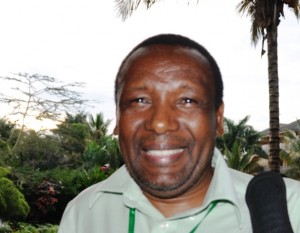
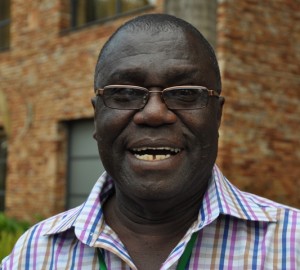
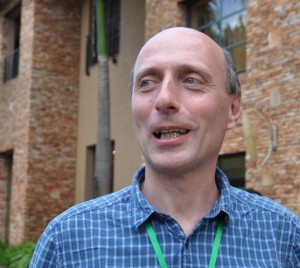
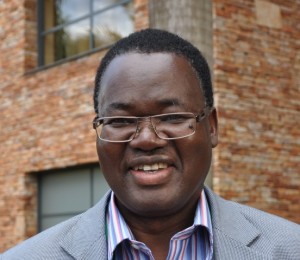
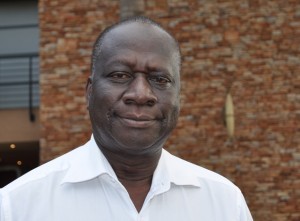
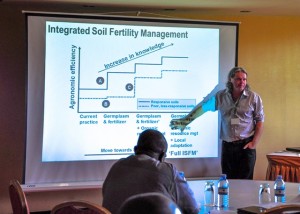


No Comments